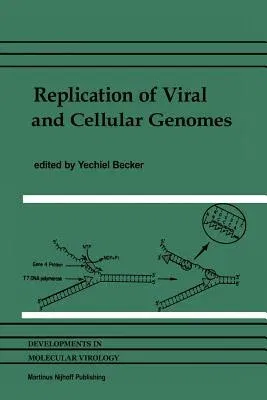Replication of Viral and Cellular Genomes: Molecular Events at the Origins of Replication and Biosynthesis of Viral and Cellular Genomes (Softcover RePaperback - Softcover Reprint of the Original 1st 1983, 13 October 2011

Qty
1
Turbo
Ships in 2 - 3 days
In Stock
Free Delivery
Cash on Delivery
15 Days
Free Returns
Secure Checkout
Part of Series
Developments in Molecular Virology
Print Length
376 pages
Language
English
Publisher
Springer
Date Published
13 Oct 2011
ISBN-10
1461338905
ISBN-13
9781461338901
Description
Product Details
Book Edition:
Softcover Reprint of the Original 1st 1983
Book Format:
Paperback
Country of Origin:
NL
Date Published:
13 October 2011
Dimensions:
23.39 x
15.6 x
2.06 cm
ISBN-10:
1461338905
ISBN-13:
9781461338901
Language:
English
Location:
New York, NY
Pages:
376
Publisher:
Weight:
548.85 gm

